
Bahai Gardens in Akko: A Tranquil Oasis by the Mediterranean
The Bahai Gardens in Akko, Israel, offer a serene escape from the bustling city life. Nestled along the Mediterranean coast, these meticulously manicured gardens are a testament to the Bahai faith's devotion to beauty, harmony, and peace. The gardens serve as a place of pilgrimage for Bahai followers and a haven for visitors seeking tranquility and inspiration. As you stroll through the lush terraces, you'll encounter an array of vibrant flowers, ornamental shrubs, and elegant water features. The gardens are designed to reflect the unity and diversity of the human race, with each plant and pathway symbolizing different aspects of creation. The centerpiece of the garden is the Shrine of Bahá’u’lláh, the final resting place of the founder of the Bahai faith, which exudes a profound sense of spirituality and reverence. Beyond the gardens, Akko itself is a treasure trove of history and culture. This ancient port city boasts a rich tapestry of influences from different civilizations, including Ottoman, Crusader, and Roman. After your visit to the Bahai Gardens, take a leisurely walk through the old city, explore the vibrant markets, and enjoy the local cuisine. The combination of natural beauty and historical richness makes the Bahai Gardens in Akko a must-visit destination for any traveler.
Local tips in Bahai Gardens
- Visit early in the morning to enjoy the gardens in peace before the crowds arrive.
- Wear comfortable walking shoes; the gardens are extensive and involve a fair amount of walking.
- Check the weather forecast and bring a hat and sunscreen if visiting during the hotter months.
- Photography is allowed, but be respectful of the spiritual nature of the site.
- Combine your visit with a tour of Akko's old city to fully appreciate the area's historical significance.
Bahai Gardens in Akko: A Tranquil Oasis by the Mediterranean
The Bahai Gardens in Akko, Israel, offer a serene escape from the bustling city life. Nestled along the Mediterranean coast, these meticulously manicured gardens are a testament to the Bahai faith's devotion to beauty, harmony, and peace. The gardens serve as a place of pilgrimage for Bahai followers and a haven for visitors seeking tranquility and inspiration. As you stroll through the lush terraces, you'll encounter an array of vibrant flowers, ornamental shrubs, and elegant water features. The gardens are designed to reflect the unity and diversity of the human race, with each plant and pathway symbolizing different aspects of creation. The centerpiece of the garden is the Shrine of Bahá’u’lláh, the final resting place of the founder of the Bahai faith, which exudes a profound sense of spirituality and reverence. Beyond the gardens, Akko itself is a treasure trove of history and culture. This ancient port city boasts a rich tapestry of influences from different civilizations, including Ottoman, Crusader, and Roman. After your visit to the Bahai Gardens, take a leisurely walk through the old city, explore the vibrant markets, and enjoy the local cuisine. The combination of natural beauty and historical richness makes the Bahai Gardens in Akko a must-visit destination for any traveler.
Iconic landmarks you can’t miss
Baháʼí Garden Haifa
Discover the breathtaking Bahá'í Gardens in Haifa, a UNESCO World Heritage Site renowned for its stunning terraced landscapes and serene spiritual atmosphere.
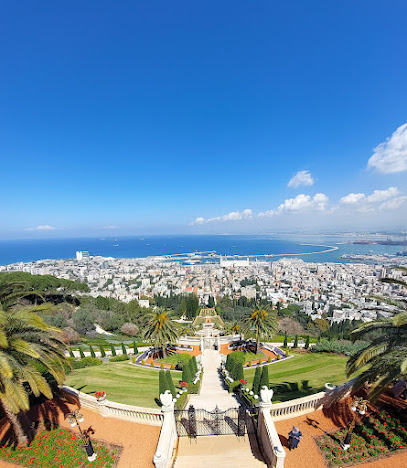
Bahá’í Gardens Haifa (Bahá’í Holy Place)
Explore the breathtaking Bahá’í Gardens in Haifa, a UNESCO World Heritage site, renowned for its stunning terraces, spiritual ambiance, and breathtaking views.
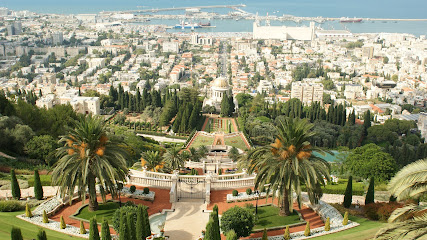
Bahá'í Gardens Haifa (Bahá’í Holy Place)
Explore the breathtaking Bahá'í Gardens in Haifa, a UNESCO World Heritage Site, where beauty, spirituality, and tranquility converge in a stunning landscape.
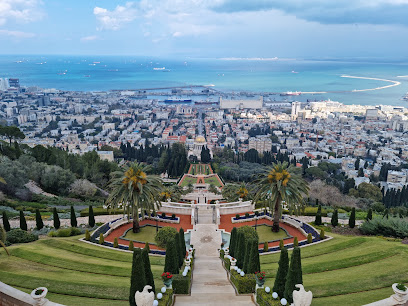
Akko Old City Waterfront Wall
Discover the breathtaking views and rich history at Akko's Old City Waterfront Wall, a UNESCO World Heritage Site steeped in culture.
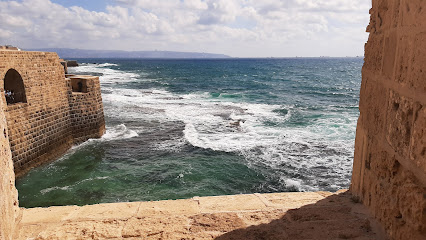
Shrine of the Báb (Bahá’í Holy Places)
Discover the serene beauty and spiritual significance of the Shrine of the Báb, a UNESCO World Heritage Site in Haifa's enchanting terraced gardens.
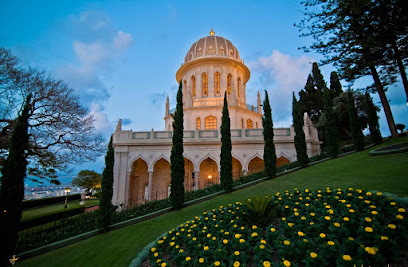
Old Akko Walls
Discover the historic Old Akko Walls, a UNESCO World Heritage site, and immerse yourself in the rich cultural tapestry of Acre, Israel.
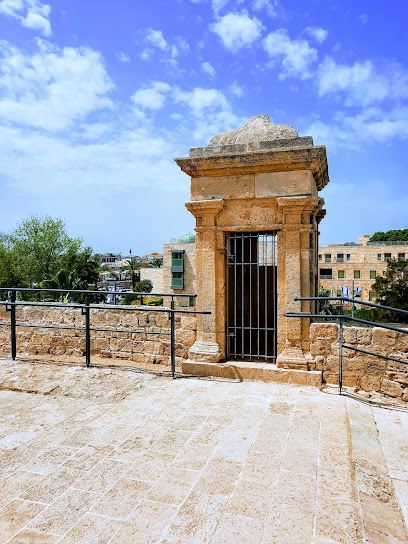
Ridván Garden (Bahá’í Holy Place)
Explore the breathtaking Ridván Garden in Acre, a serene Bahá’í pilgrimage site filled with lush landscapes, spiritual significance, and tranquil beauty.
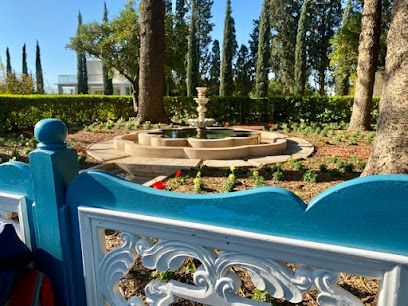
House of 'Abbud (Bahá’í Holy Place)
Discover the tranquil beauty and spiritual significance of the House of 'Abbud, an essential pilgrimage site in Acre, Israel.
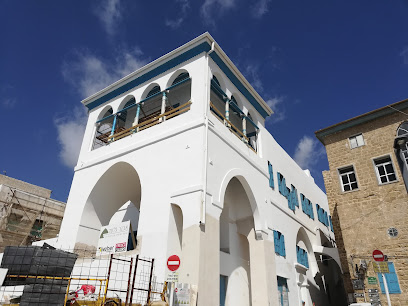
Baha'i Shrine of 'Abdu'l-Baha
Discover the serene Baha'i Shrine of 'Abdu'l-Baha in Acre, a UNESCO World Heritage Site that embodies tranquility, beauty, and spiritual significance.
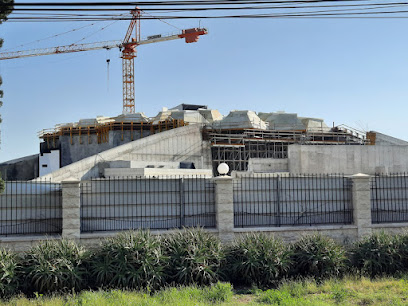
Unmissable attractions to see
Knights' Halls, Old Akko
Discover the historical marvels of Knights' Halls in Old Akko, a stunning blend of medieval architecture and scenic surroundings.
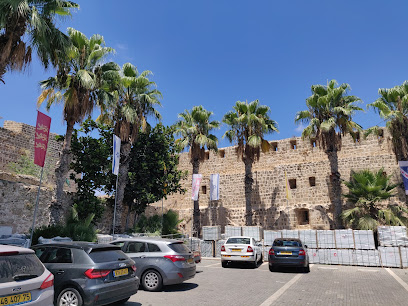
Templar's Tunnel
Uncover the Secrets of Acre's Past at Templar's Tunnel – A Must-Visit Historical Landmark in Israel's Rich Heritage.
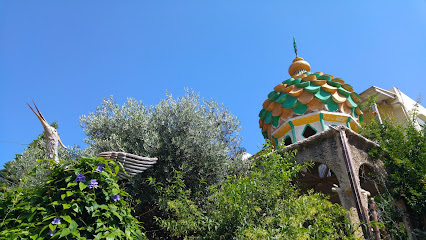
The Old City
Explore the rich history and vibrant culture of The Old City of Acre, a UNESCO Heritage site filled with stunning architecture and local markets.
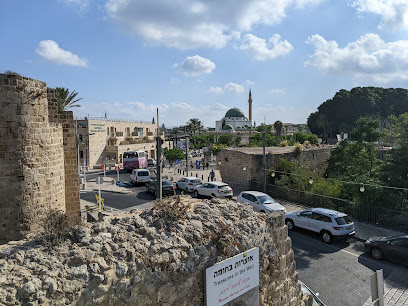
Extreme Park
Discover the thrill of adventure and family fun at Extreme Park, a top theme park destination in Acre, Israel, perfect for tourists of all ages.
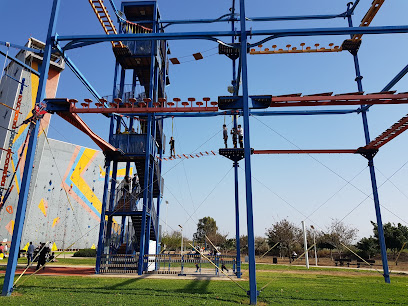
Queen Cruises Malkat Akko Acre
Experience the breathtaking beauty of Akko's coastline with Queen Cruises, where history meets the serenity of the Mediterranean Sea.
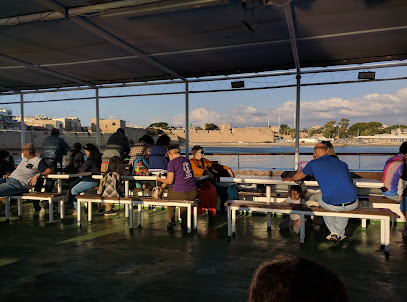
Walls of Acre
Experience the captivating history and stunning views at the Walls of Acre, a UNESCO World Heritage site rich in cultural heritage and architectural beauty.
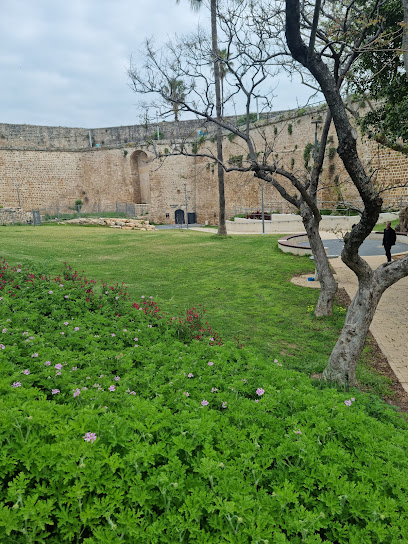
Argaman Beach
Discover the beauty of Argaman Beach in Acre, where the sands meet history and the sea invites you to unwind.
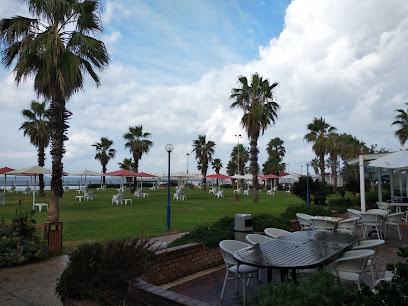
Ridván Garden (Bahá’í Holy Place)
Explore Ridván Garden, a Bahá'í Holy Place in Acre, offering serene landscapes and spiritual significance for visitors from around the world.
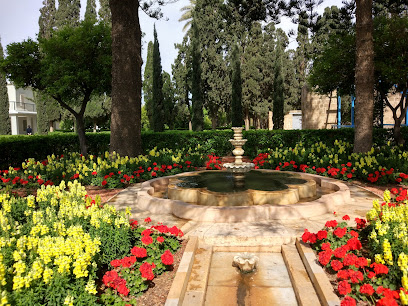
סמטאת הסנוניות
Explore Baldwin Street in Acre, a bird-watching haven teeming with vibrant avian species and breathtaking natural scenery.
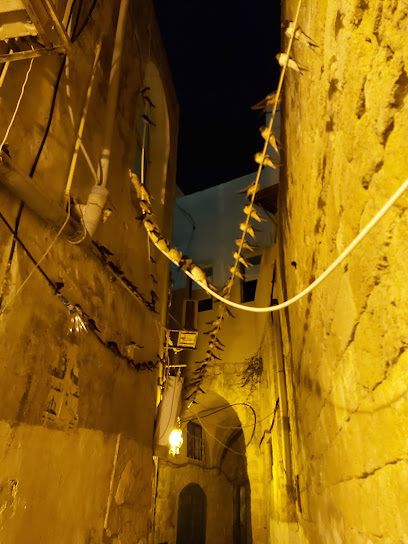
Essential places to dine
Uri Buri
Discover Uri Buri in Acre: A seafood paradise offering fresh flavors and breathtaking Mediterranean views for an unforgettable dining experience.
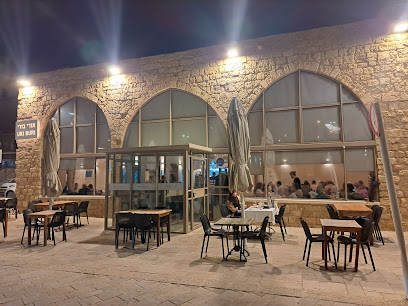
Abu Christo
Experience authentic Mediterranean cuisine at Abu Christo in Kafr Yasif – where every meal is a celebration of local flavors.
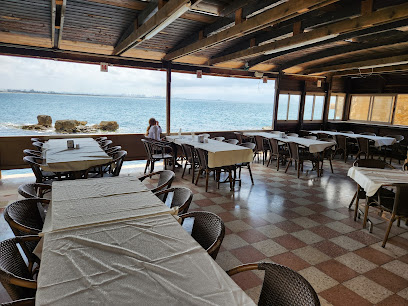
The Bread And Fish
Experience authentic seafood dining at The Bread And Fish in Acre - where local flavors meet vibrant atmosphere.
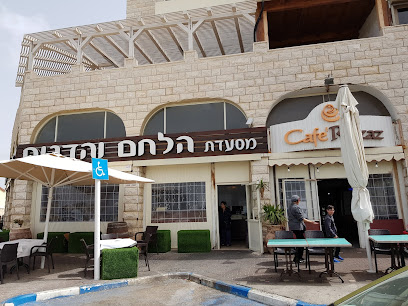
Panorama Restaurant Acre
Experience authentic Mediterranean cuisine at Panorama Restaurant Acre while enjoying breathtaking views of Argaman Beach.
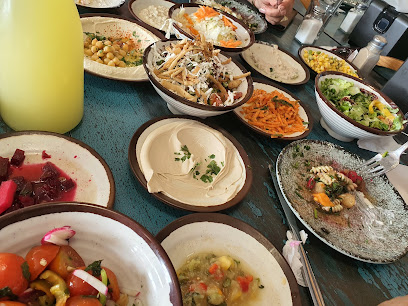
Fishers' Restaurant מסעדת הדייגים
Discover exquisite seafood delights and stunning coastal views at Fishers' Restaurant in historic Acre.
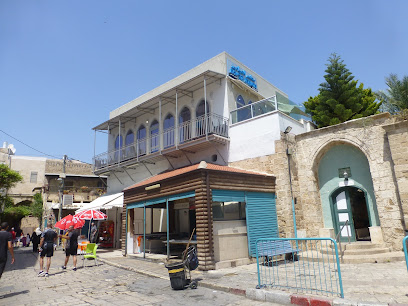
Siran Restaurant
Experience authentic Israeli flavors at Siran Restaurant in Acre—where tradition meets modern cuisine in a welcoming atmosphere.
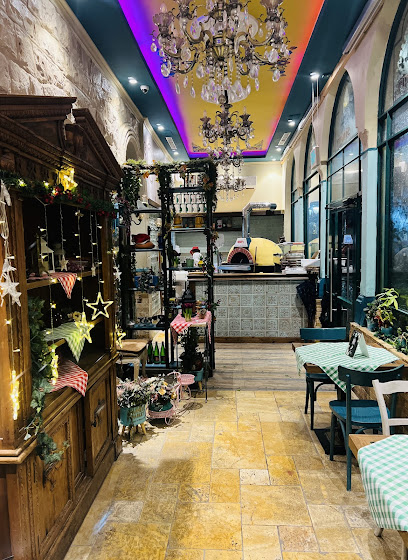
פלאפל שמסייה
Discover the authentic taste of Israel at Falafel Shamsiya in Acre - where every bite is a celebration of local flavors.
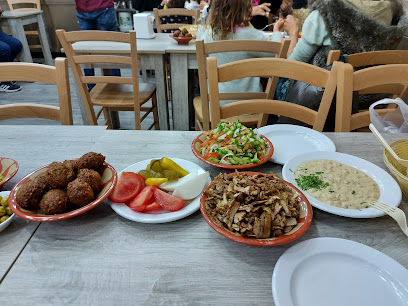
Ram Restaurant
Discover exquisite dining at Ram Restaurant in Acre - where local flavors meet exceptional service in a charming atmosphere.
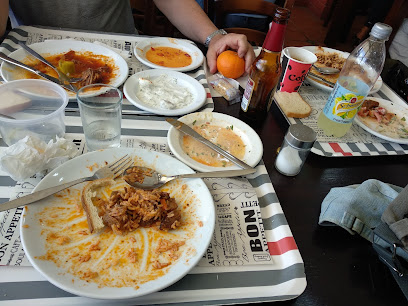
Elmoalem Restaurant
Experience authentic Israeli cuisine at Elmoalem Restaurant in Acre—where tradition meets flavor in every bite.
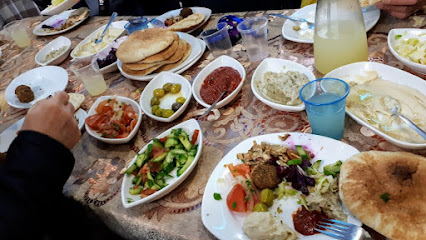
Abu George
Experience authentic Middle Eastern cuisine at Abu George in Acre, where tradition meets flavor in every dish.
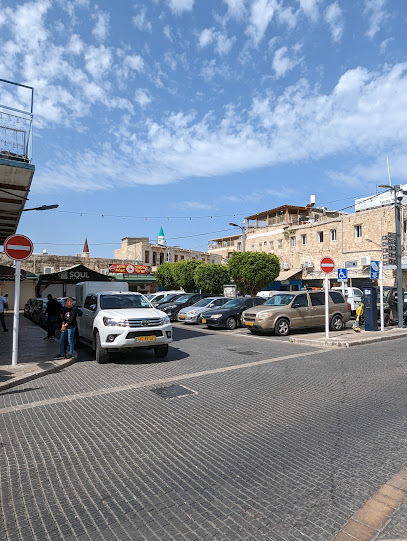
Markets, malls and hidden boutiques
David Miro Souvenirs & Art Copper Works
Explore the vibrant artistry of Acre at David Miro Souvenirs & Art Copper Works, where unique copper crafts await to tell your story.
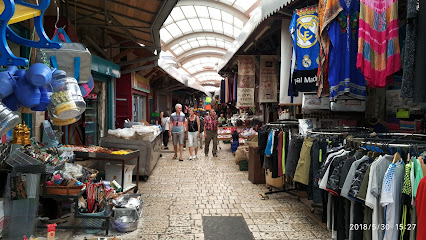
תכשיטים ומזכרות בולוס אליאס
Discover unique local jewelry and souvenirs at Tchachkies and Souvenirs in Akko, a treasure trove for tourists seeking memorable keepsakes.
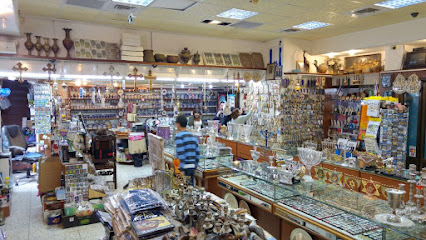
סטוק סנטר
Discover unique home goods and local craftsmanship at Stok Center in Acre, a vibrant shopping destination for tourists.
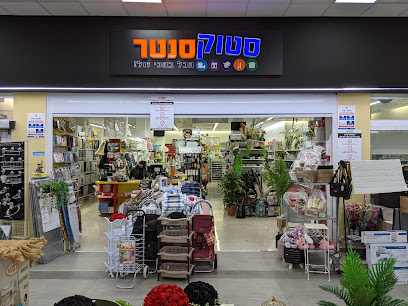
Home Style
Discover unique home goods in Acre at Home Style, where local culture meets exceptional craftsmanship for your home.
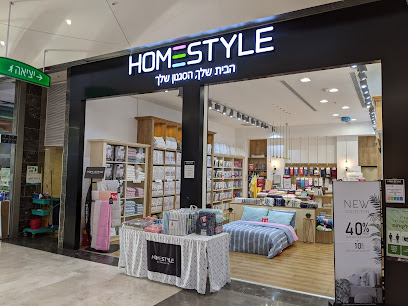
זעפרן
Discover the rich flavors of Acre at Zafran, a spice store filled with exotic spices and culinary treasures.
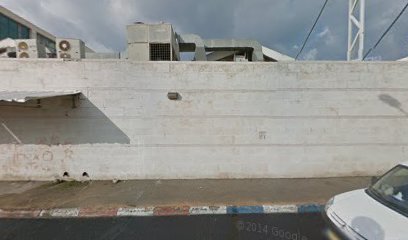
Super Stock
Explore the vibrant flavors of Acre at Super Stock, the local grocery store that offers fresh produce and unique regional products for every traveler.
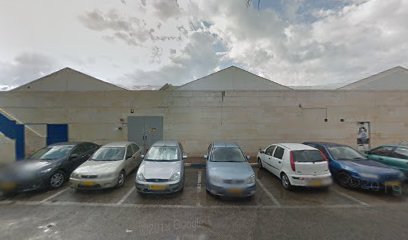
ML
Explore the authentic local culture at ML, a charming store in Acre offering unique handcrafted goods and delicious local treats.
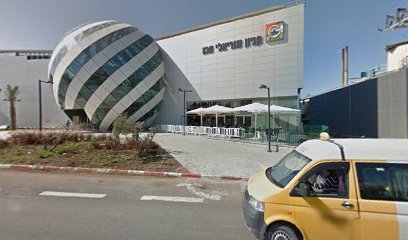
טדי ברס ישראל | TEDDY BEARS ISRAEL
Discover the enchanting world of Teddy Bears Israel in Acre, where whimsical gifts and charming teddy bears await every visitor.

Renuar
Explore Renuar in Acre for trendy clothing that perfectly combines contemporary style with the historic charm of this ancient port city.
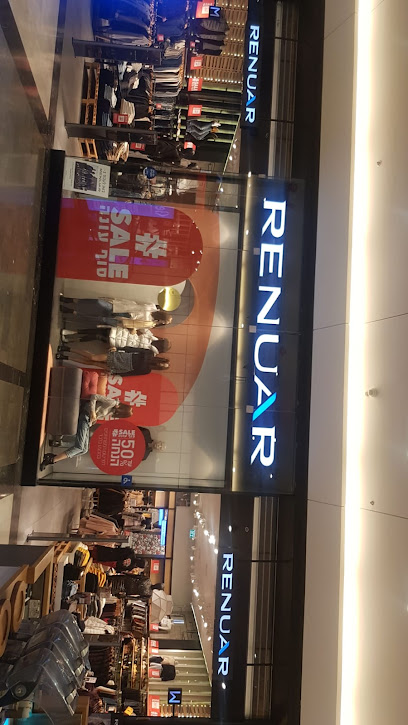
Body Shop
Explore the eco-friendly beauty of Body Shop in Acre, where nature meets wellness for a rejuvenating shopping experience.
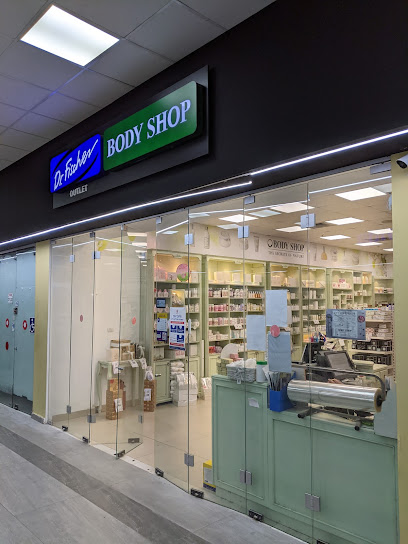
Essential bars & hidden hideouts
Panorama Restaurant Acre
Discover the culinary treasures of Acre at Panorama Restaurant, where exquisite Mediterranean flavors meet stunning seaside views.
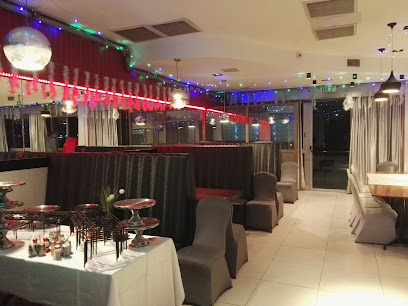
Fishers' Restaurant מסעדת הדייגים
Discover the culinary delights of Fishers' Restaurant in Acre, where fresh seafood meets stunning Mediterranean views.
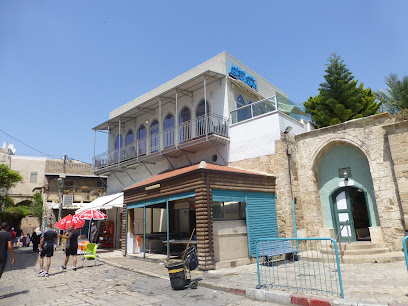
Sama
Experience the flavors of Acre at Sama, a premier gastropub with breathtaking rooftop views and a menu that celebrates local cuisine.
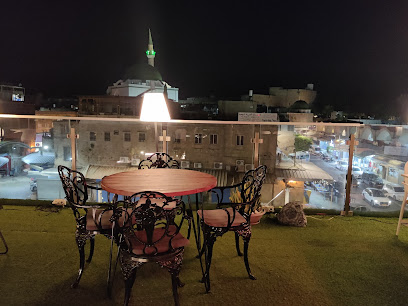
Restaurant & Cafe Khalifa
Discover the rich flavors of Acre at Restaurant & Cafe Khalifa, where tradition meets taste in a charming historic setting.
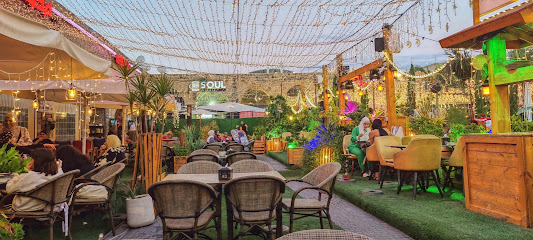
Marsa Bar מרסא בר
Experience the lively atmosphere of Marsa Bar, a must-visit destination in the historic Old Port of Acre, with stunning views and a diverse drink selection.
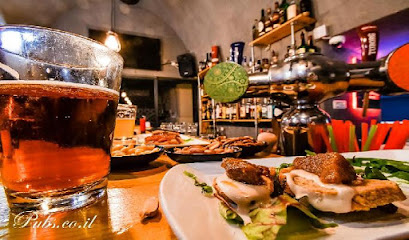
BAR 11
Immerse yourself in the lively atmosphere of BAR 11, Acre’s top live music bar, where every night brings unforgettable performances and delightful drinks.
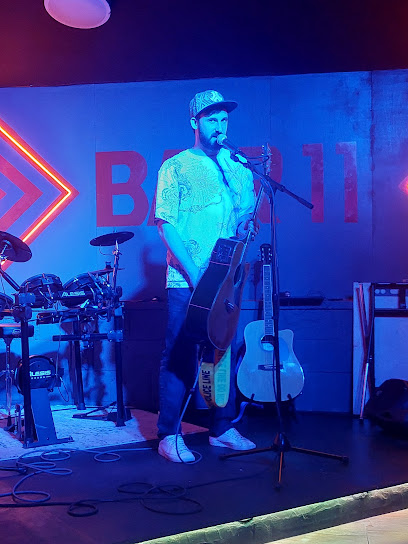
Работа
Experience the lively ambiance and local flavors at Работа Bar in Kiryat Bialik, your perfect nightlife destination.
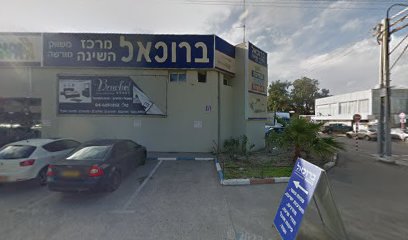
הכנאפה של קשאש
Experience the best handmade Kanafeh in Acre at Kasha's, a treasured gem for dessert lovers seeking authentic flavors.
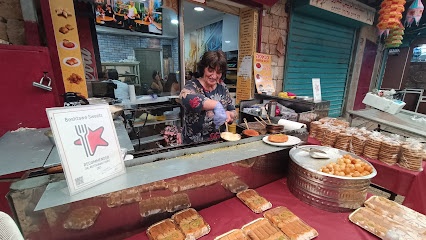
Tamar's Bar @ Akotika
Discover the vibrant atmosphere and local flavors at Tamar's Bar in Acre, a must-visit spot for tourists exploring the historic city.
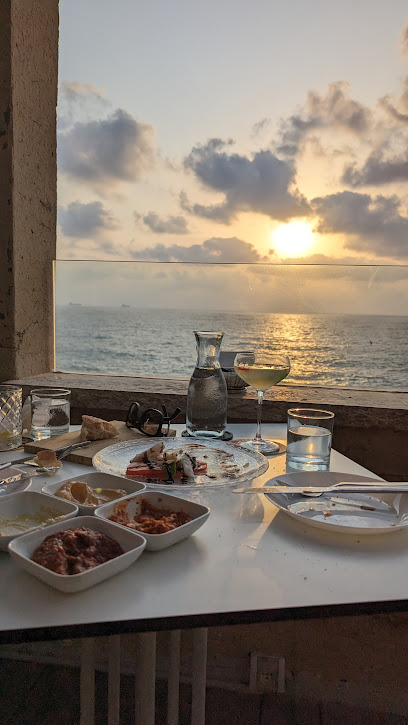
jin&jones - שירותי בר ואלכוהול
Discover the Best Cocktails in Regba at jin&jones - A Trendy Bar for Unforgettable Nights Out
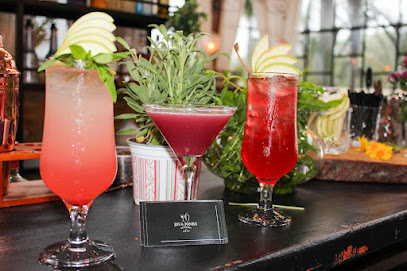
Local Phrases
-
- Helloשָׁלוֹם
[Shalom] - Goodbyeלְהֵיתָר
[Lehitraot] - Yesכֵּן
[Ken] - Noלא
[Lo] - Please/You're welcomeבבקשה
[Bevakasha] - Thank youתודה
[Toda] - Excuse me/Sorryסליחה
[Slicha] - How are you?איך אתה?
[Eich Ata?] - Fine. And you?טוב. ואתה?
[Tov. Ve'ata?] - Do you speak English?האם אתה מדבר אנגלית?
[Ha'Im Ata Medaber Anglit?] - I don't understandאני לא מבין
[Ani Lo Mevin]
- Helloשָׁלוֹם
-
- I'd like to see the menu, pleaseאני רוצה לראות את התפריט, בבקשה
[Ani Rotze La'rot Et Ha'tafrid, Bevakasha] - I don't eat meatאני לא אוכל בשר
[Ani Lo Ochel Basar] - Cheers!לחיים!
[L'chaim!] - I would like to pay, pleaseאני רוצה לשלם, בבקשה
[Ani Rotze Leshalem, Bevakasha]
- I'd like to see the menu, pleaseאני רוצה לראות את התפריט, בבקשה
-
- Help!עזור!
[Ezor!] - Go away!לך לך!
[Lech Lech!] - Call the Police!תקרא למשטרה!
[Tkara La'mishtara!] - Call a doctor!תקרא לרופא!
[Tkara La'rofe!] - I'm lostאני אבוד
[Ani Avud] - I'm illאני חולה
[Ani Choleh]
- Help!עזור!
-
- I'd like to buy...אני רוצה לקנות...
[Ani Rotze Liknot...] - I'm just lookingאני רק מסתכל
[Ani Rak Mistakel] - How much is it?כמה זה עולה?
[Kama Ze Ole?] - That's too expensiveזה יקר מדי
[Ze Yikar M'od] - Can you lower the price?אתה יכול להוריד את המחיר?
[Ata Yachol Lehored Et Ha'machir?]
- I'd like to buy...אני רוצה לקנות...
-
- What time is it?מה השעה?
[Ma Ha'sha'a?] - It's one o'clockזה שעה אחת
[Ze Sha'a Achat] - Half past (10)חצי (עשר)
[Chatzi (Eser)] - Morningבוקר
[Boker] - Afternoonצהריים
[Tzohorayim] - Eveningערב
[Erev] - Yesterdayאתמול
[Etmol] - Todayהיום
[Hayom] - Tomorrowמחר
[Mahar] - 1אחד
[Echad] - 2שניים
[Shnayim] - 3שלוש
[Shalosh] - 4ארבע
[Arba] - 5חמש
[Chamesh] - 6שש
[Shesh] - 7שבע
[Sheva] - 8שמונה
[Shmoneh] - 9תשע
[Tisha] - 10עשר
[Eser]
- What time is it?מה השעה?
-
- Where's a/the...?איפה נמצא...
[Eifo Nimtza...] - What's the address?מה הכתובת?
[Ma Ha'ktovet?] - Can you show me (on the map)?אתה יכול להראות לי (על המפה)?
[Ata Yachol Leharaot Li (Al Ha'mapa)?] - When's the next (bus)?מתי האוטובוס הבא?
[Matai Ha'otobus Ha'ba?] - A ticket (to ....)כרטיס (ל...)
[Kartis (Le...)]
- Where's a/the...?איפה נמצא...
History of Bahai Gardens
-
The Bahá'í Faith, founded in the mid-19th century, traces its origins to the teachings of Bahá'u'lláh, who declared in 1863 that he was the latest in a line of prophets that includes Jesus, Muhammad, and Moses. The Bahá'í community in Akko began to take shape after Bahá'u'lláh was exiled to this city in 1868, where he spent the remainder of his life. Akko's significance as a spiritual center was solidified as it became the place where Bahá'u'lláh revealed many of his writings.
-
Following the passing of Bahá'u'lláh in 1892, his burial site was established in a garden outside Akko's city walls. The Shrine of Bahá'u'lláh, designed with exquisite architecture, became a focal point for Bahá'í pilgrims from around the world, symbolizing the unity and peace that is central to Bahá'í teachings. The gardens surrounding the shrine were meticulously landscaped and are recognized as a UNESCO World Heritage Site.
-
Throughout the 20th century, the Bahá'í community in Akko grew, with the establishment of various institutions and the expansion of their gardens. Significant milestones included the construction of the International Bahá'í Archives and the establishment of the Bahá'í World Centre in Haifa, which is just a short distance from Akko. The gardens in Akko serve as a serene retreat for both visitors and believers, embodying the principles of harmony and beauty.
-
Akko has a rich tapestry of cultural and religious history, having been inhabited by various civilizations, including the Crusaders, Ottomans, and British. The Bahá'í Gardens reflect the community's commitment to coexistence and tolerance, drawing visitors from diverse backgrounds who come to appreciate the peaceful ambiance. The gardens symbolize the Bahá'í belief in the oneness of humanity, fostering a space for dialogue among different faiths.
-
In recent years, the Bahá'í Gardens in Akko have gained international recognition, attracting tourists and pilgrims alike. The gardens are part of a larger network of Bahá'í sites that highlight the religion's commitment to peace, education, and community service. Events and programs organized by the Bahá'í community continue to promote the values of unity and social progress in the region, further enhancing Akko's reputation as a center of interfaith dialogue and cultural exchange.
Bahai Gardens Essentials
-
The Bahai Gardens in Akko are easily accessible from various neighborhoods within the city. If you are coming from the Old City, it's a pleasant 15-minute walk along the coast. Alternatively, local buses (lines 1 and 2) run frequently and connect the Old City with the Bahai Gardens. Taxis are also available and are a quick option for those preferring not to walk.
-
Bahai Gardens are best explored on foot, as the area is relatively small and pedestrian-friendly. For those wishing to venture further, local buses and taxis are available. Biking is an option, but be cautious as bike lanes are limited. Consider using a bike rental service for a more immersive experience of the surrounding area.
-
Akko is generally safe for tourists, but standard precautions should be taken. Avoid walking alone late at night in less populated areas, and be mindful of your belongings in crowded places. While there are no specific high-crime areas, it is advisable to stay alert, especially near the bus terminals and marketplace.
-
In case of emergency, dial 100 for police or 101 for ambulance services. The local hospital is accessible and has an emergency department. It is recommended to have travel insurance covering medical emergencies. For non-urgent health issues, local pharmacies can assist with over-the-counter medications.
-
Fashion: Do dress modestly when visiting the Bahai Gardens and avoid revealing clothing. Religion: Do respect the sacred nature of the site; photography may be restricted in certain areas. Public Transport: Do be courteous to fellow passengers; don't engage in loud conversations. Greetings: Do greet locals with a smile and a friendly 'Shalom'. Eating & Drinking: Do enjoy local foods at nearby cafes; don't eat or drink inside the Gardens as it is prohibited.
-
To experience the Bahai Gardens like a local, visit during the early morning or late afternoon for fewer crowds and more serene views. Engage with local tour guides who can provide insights into the history and significance of the Gardens. Don't forget to explore the nearby markets for local delicacies and crafts, enhancing your visit with authentic experiences.
Trending Landmarks in Bahai Gardens
Nearby Cities to Bahai Gardens
-
Things To Do in Acre
-
Things To Do in Nahariya
-
Things To Do in Haifa
-
Things To Do in Rosh HaNikra
-
Things To Do in Nazareth
-
Things To Do in Safed
-
Things To Do in Zikhron Ya'akov
-
Things To Do in Tyre
-
Things To Do in Tiberias
-
Things To Do in Caesarea
-
Things To Do in Hadera
-
Things To Do in Beit She'an
-
Things To Do in Umm Qais
-
Things To Do in Marjayoun
-
Things To Do in Netanya





